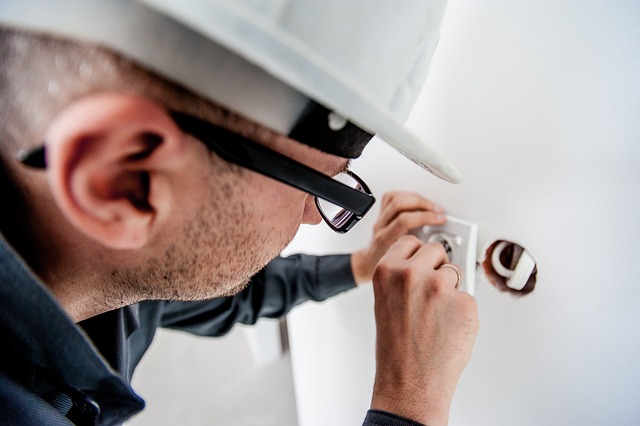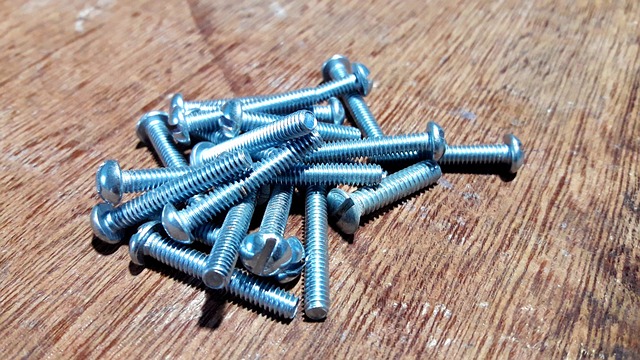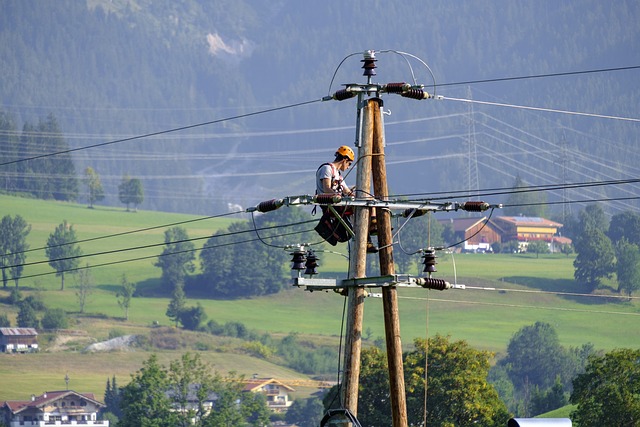Circuit breakers are essential safety devices that protect homes from electrical hazards by automatically cutting off power in overcurrent situations, preventing fires and damage. Homeowners should upgrade from old fuse systems to modern circuit breakers, which are safer, more reliable, and can be reset after use. This upgrade not only enhances safety but also potentially increases property value. Circuit breakers come in various types, including conventional, RCD combined breakers (RCBOs), and arc fault circuit interrupters (AFCIs), each designed to address specific risks. As electrical systems age, they become less safe, with increased risk of fire or shock, necessitating an upgrade. A professional electrician should perform this installation to ensure it meets safety standards and local codes, and to tailor the system to your home's specific needs. Regular evaluation by a qualified electrician is important to identify any signs of aging or compromise in your electrical system, which may include frequent fuse tripping or visible rust/corrosion on the fuse box. Upgrading to circuit breakers under the guidance of an expert electrician ensures a modern, safe, and efficient electrical system that can handle today's increased power demands from appliances and electronics.
upgrading from fuses to circuit breakers is a critical step in enhancing your home’s electrical safety and efficiency. This comprehensive guide explores the transformative journey from outdated fuse systems to modern, reliable circuit breakers. We’ll delve into their pivotal role in safeguarding your home, the evolution of fuse technology, and the unmistakable signs that signify the need for an upgrade. Discover the myriad benefits of making the switch, including advanced safety features, heightened electrical efficiency, and the convenience of easy resets after tripping. Learn about the professional process of replacement, the various types of circuit breakers suitable for different homes, and the essential considerations for DIY versus hiring a qualified electrician. Through a detailed case study and maintenance tips, this article will provide valuable insights into the financial and insurance implications, ensuring your home is not only up-to-date but also potentially more valuable. Moreover, we’ll discuss how smart circuit breakers are revolutionizing electrical systems and answer frequently asked questions about the upgrade process. Whether you’re a homeowner looking to future-proof your residence or an electrician seeking to understand the latest in electrical safety, this article is tailored to guide you through every aspect of transitioning from fuses to circuit breakers.
- Understanding Circuit Breakers and Their Role in Home Safety
- The Evolution of Fuse Systems to Modern Circuit Breakers
- Signs It's Time to Replace Your Old Fuses with Circuit Breakers
- Benefits of Upgrading to Circuit Breakers from Fuses
Understanding Circuit Breakers and Their Role in Home Safety

When it comes to safeguarding your home from electrical hazards, understanding circuit breakers is paramount. Circuit breakers serve as a critical safety mechanism by protecting your electrical system from damage caused by excess current from an overloaded circuit, short circuit, or faulty equipment. They are designed to detect a fault and interrupt the current flow in a fraction of a second to prevent damage to the circuit or the appliances connected to it. This rapid response can be lifesaving as it minimizes the risk of electrical fires and reduces the potential for long-term damage to your home’s wiring system.
Homeowners should consider consulting a professional electrician when upgrading from old fuses to modern circuit breakers. An electrician not only ensures that the installation is performed safely and in compliance with local codes but also verifies that the new system is appropriately sized for your home’s electrical needs. This expert guidance is crucial because the correct placement and amperage ratings of circuit breakers are vital for optimal protection and performance. By replacing outdated fuses, which simply open a circuit when too much current flows, with modern circuit breakers, you enhance both the functionality and safety of your home’s electrical system. This upgrade can also increase the overall value of your property by providing peace of mind and reducing the risk of costly electrical failures.
The Evolution of Fuse Systems to Modern Circuit Breakers

As electrical systems evolved from the late 19th century, the methods for safeguarding circuits against overcurrent conditions underwent a significant transformation. Traditional fuse systems, which involved fuses made of materials like tin or zinc with a melting point below the normal operating current, were initially employed to provide protection. However, these fuses could be unpredictable and sometimes posed risks as they melted, potentially creating fire hazards if not properly extinguished. The advent of modern circuit breakers represented a leap forward in electrical safety and efficiency. Circuit breakers are devices that can detect overcurrent conditions and interrupt the electric circuit to prevent damage or danger. Unlike fuses, which were single-use components, circuit breakers could be reset after tripping, thus providing a reusable solution for protecting electrical circuits. The role of the electrician has also shifted with this technological advancement; whereas once they might have regularly replaced fuses, today’s electricians install and maintain these sophisticated safety devices. Circuit breakers come in various forms, including conventional, residual-current (RCBO), and arc fault circuit interrupters (AFCIs), each designed to address different types of hazards within an electrical system, thereby enhancing the overall safety and reliability of our homes and buildings.
Signs It's Time to Replace Your Old Fuses with Circuit Breakers

When household electrical systems begin showing signs of age, such as frequent tripping of fuses or an increase in fires caused by electrical failures, it’s a clear indication that an upgrade to modern circuit breakers is overdue. Old fuse boxes can pose significant safety risks, including the potential for electrical shocks and house fires. An experienced electrician can assess your current system and provide expert advice on whether it’s time for an upgrade. Common issues like fuses blowing more often than usual or a visible buildup of rust or corrosion on the fuse box are clear signals that its functionality is compromised. Moreover, if your home’s electrical demands have grown with added appliances and devices, an old fuse system will struggle to cope, potentially leading to overloaded circuits. Circuit breakers offer a safer, more reliable alternative, automatically resetting without the need for physical replacement of fuses, and providing better protection against power surges. Homeowners should consider these signs as clear indicators that a switch from outdated fuse boxes to advanced circuit breakers is not just an upgrade but a necessary step in safeguarding their homes and families from potential electrical hazards. To ensure the transition is performed correctly and safely, it’s advisable to hire a qualified electrician who can handle the installation process efficiently, adhering to all relevant safety standards and ensuring your home’s electrical system is up-to-date with current technology.
Benefits of Upgrading to Circuit Breakers from Fuses

Upgrading from traditional fuses to modern circuit breakers offers a multitude of advantages, enhancing safety and efficiency in electrical systems. Circuit breakers are designed with a mechanism that detects excess current flow, automatically interrupting the circuit to prevent overheating and potential fires. This advanced feature provides a significant safety enhancement over fuses, which once blown, require manual replacement before the system can function safely again. An experienced electrician can efficiently install these devices, ensuring your home or business benefits from their instantaneous tripping capabilities, which offer better protection against electrical surges and short circuits.
Moreover, circuit breakers contribute to a more reliable power supply by allowing for precise control over the electrical load. They facilitate the identification of overloaded circuits without causing system-wide shutdowns, as was often the case with fuses. This selective interrupting capability minimizes disruptions and enables faster restoration of power to unaffected parts of the system. Additionally, the longevity of circuit breakers reduces the frequency of maintenance checks compared to fuses, which have a limited lifespan and require regular inspection and replacement. An electrician can guide you through the process of selecting the appropriate circuit breaker for your specific needs, ensuring optimal performance and longevity of your electrical system.
In conclusion, the transition from traditional fuses to modern circuit breakers represents a significant advancement in home safety and electrical system efficiency. Homeowners are encouraged to recognize the signs indicating the need for this upgrade, as it offers numerous advantages over outdated fuse systems. By leveraging the expertise of a professional electrician, the process of replacing old fuses with circuit breakers becomes straightforward and ensures compliance with contemporary safety standards. The benefits of this upgrade, including improved response times during electrical surges, better protection against fire hazards, and enhanced control over household electricity, underscore its importance for modern homes. Homeowners who make this switch can rest easier, knowing their homes are equipped with state-of-the-art safety measures that protect their families and property.
